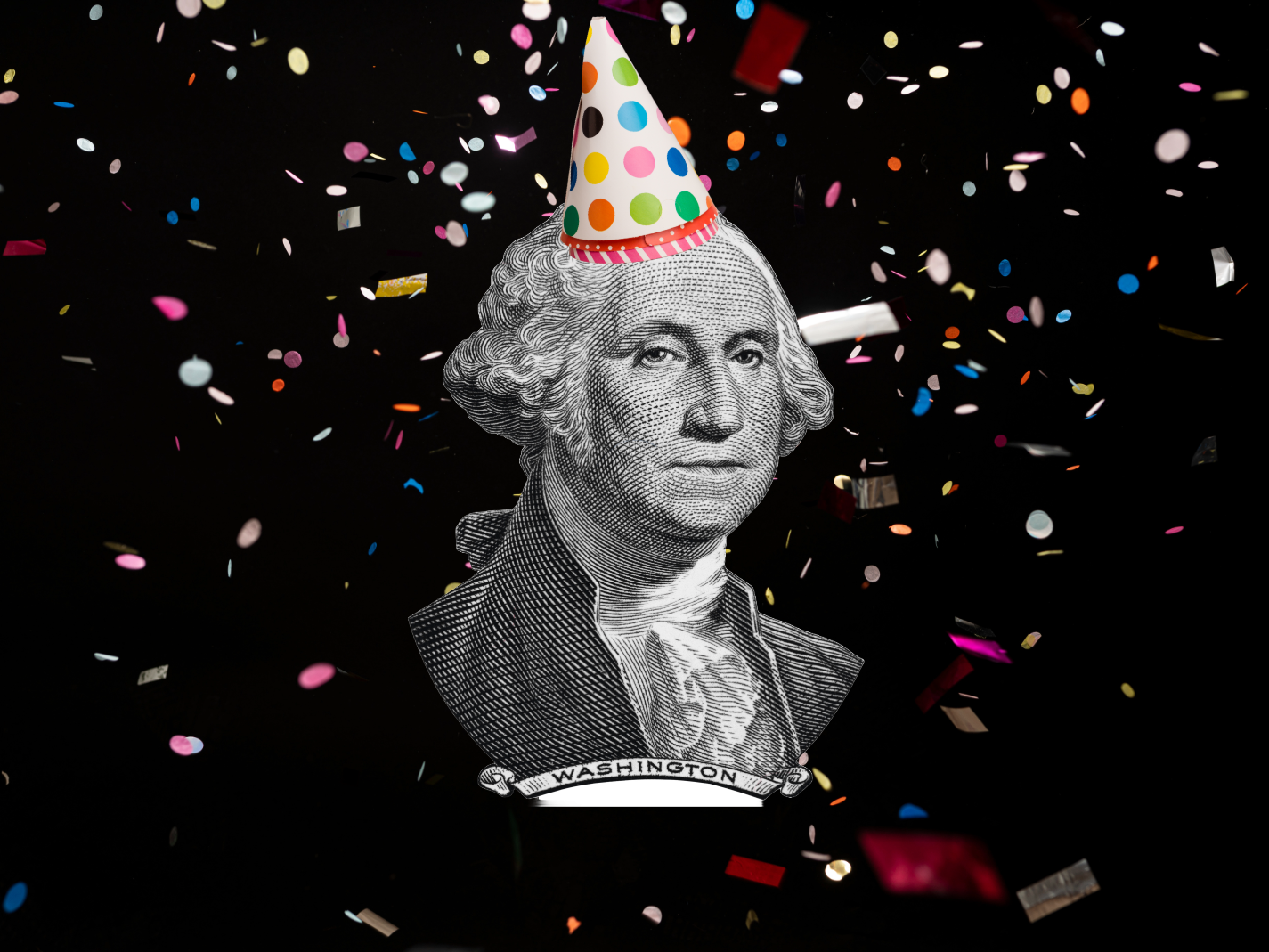
Today is George Washington’s birthday, the original inspiration for what we now know as Presidents’ Day. The holiday was shifted from February 22 to the third Monday of February under the 1971 Uniform Monday Holiday Act, aimed at giving the nation’s workers more three-day weekends—just what bureaucrats need. But I wonder, do college students know the backstory of Presidents’ Day? Do they realize it’s supposed to be a tribute to George Washington? Do they even care? It seems that while colleges are quick to give days off for Martin Luther King Jr. Day or Indigenous Peoples’ Day, as the left coined, the day set to honor the most formidable founder of the country is just another manic Monday on campus.
These thoughts lead me to this question: by dismissing Washington’s birthday, are we contributing, in a significant way, to Americans—especially college students—not knowing much about U.S. presidents, let alone George Washington? I think the answer is yes.
The timeless gem of a video, “Americans Don’t Know Their Own History!,” by the witty Will Whit, perfectly proves this point. In the footage below, you’ll see several college-age passersby struggling with basic questions about American presidents. Even simple inquiries such as which political party Abraham Lincoln belonged to or who was the first President of the United States stump them, even though they’re in the presence of D.C.’s presidential monuments.
Even the history major couldn’t recount basic facts about American history; she wrongly stated that the Declaration of Independence was signed in 1773 instead of 1776 and assumed, incorrectly, that Lincoln was a member of the Democratic party. But for those who have been closely examining trends in academia, the history major’s ignorance is no surprise.
A 2016 excerpt from an American Council of Trustees and Alumni (ACTA) report, “No U.S. History? How College History Departments Leave the United States out of the Major,” highlighted that fewer than one-third of the nation’s leading colleges and universities mandate students pursuing a history degree to take a single course in American history. The study of 76 top institutions revealed a startling trend where American history is often sidelined in favor of other subjects—like gender studies.
Despite the assumption that top-tier colleges would prioritize education for meaningful citizenship, ACTA’s research showed that only “23 undergraduate history programs at the … top 25 national universities, top 25 public institutions, and top 25 liberal arts colleges require a single U.S. history class.” This neglect extends to the major itself, with most prestigious institutions not requiring history majors to study U.S. history or government.
Even more concerning is that many students harbor strong disdain for historical figures whom they know very little about or, at most, only recognize for their involvement in slavery.
A video that circulated on social media in June of 2020, for example, depicted a crowd cheering at the site of George Washington’s statue being pulled down and spray-painted with phrases like “You’re on Native land” and “BLM”—which natives? The natives the U.S. allegedly took that land from or the natives before them?
Reverence for George Washington was questioned once again on the University of Washington’s campus when its Black Student Union (BSU) demanded the removal of his statue in February 2021. The BSU cited Washington’s role as a slave owner as the reason for their call for removal.
White supremacy is the sole association many students and even American leaders make with George Washington and other Founders. Beto O’Rourke, for example, once asserted, “this country is founded on white supremacy.” However, had he, or any of the students that toppled statues “read almost any of the writings on slavery by George Washington, Thomas Jefferson, or James Madison (not to mention Ben Franklin, Alexander Hamilton, James Wilson, or John Jay), [they] would have learned that the Founders not only acknowledged the injustice of the institution but also discussed impediments to emancipation in the near term.”
Indeed, I doubt that many college students are aware that today is George Washington’s birthday. Our national memory has predominantly etched only his status as a slave owner, an oversimplification for which our universities bear significant responsibility. However, he is a multifaceted figure whose contributions were crucial to the founding and early history of the United States. Commander-in-chief of the Continental Army, he secured the colonies’ independence from British rule, established enduring precedents such as the Cabinet system and the tradition of two terms, and presided over the Constitutional Convention in 1787.
On this Washington’s birthday, strive to be a beacon of nuance in a world filled with false platitudes and misinformation. And let’s wish George a Happy Birthday!
Photo by Asier — Adobe Stock — Asset ID#: 553524672 & vkilikov Adobe Stock — Asset ID#: 134269171 — Edited by Jared Gould

Such a sad state of affairs that the indispensable man of the revolution and the Father of America is tossed aside so easily by modern “scholars.” The integrity, wisdom, and honor that this man possessed is to be admired, especially in a time where our leaders fall so short of his example. He abhorred slavery, as did most of the Founders.
Starting in 2006, the Intercollegiate Scholars Institute conducted a series of studies on what college graduates don’t know — see: https://www.americancivicliteracy.org/summary-2/
As to made-up holidays, my personal favorite is “Juneteenth” which is NOT the day that slavery ended in America. It was still legal in the border states until the ratification of the 13th Amendment the following December — except that the Creek Nation was able to keep their Black slaves until 1866 — see https://www.blackpast.org/african-american-history/u-s-treaty-creek-nation-1866/
Of course, if I want to get snarky, the fact remains that John Adams wrote to his wife Abigail that future generations would view July 2nd as the birth date of a great nation as they had voted to approve the Declaration of Independence on that day.
And then George Washington really wasn’t that good a military leader — as a Colonel and leader of the Virginia Militia during the French and Indian Wars, he hadn’t done all that well with a couple of serious blemishes on his record.
No, Washington’s skill was as a diplomat and keeping together a rag-tag coalition while also dealing with an often indecisive Congress. The 1787 Constitution was written with the knowledge that he would be the President — and he could have become King if he’d wanted to. Much to the surprise of many European leaders, he stepped down at the end of his second term and went back to being a farmer.
In an era of scorched earth politics, this is what we really should remember Washington for.